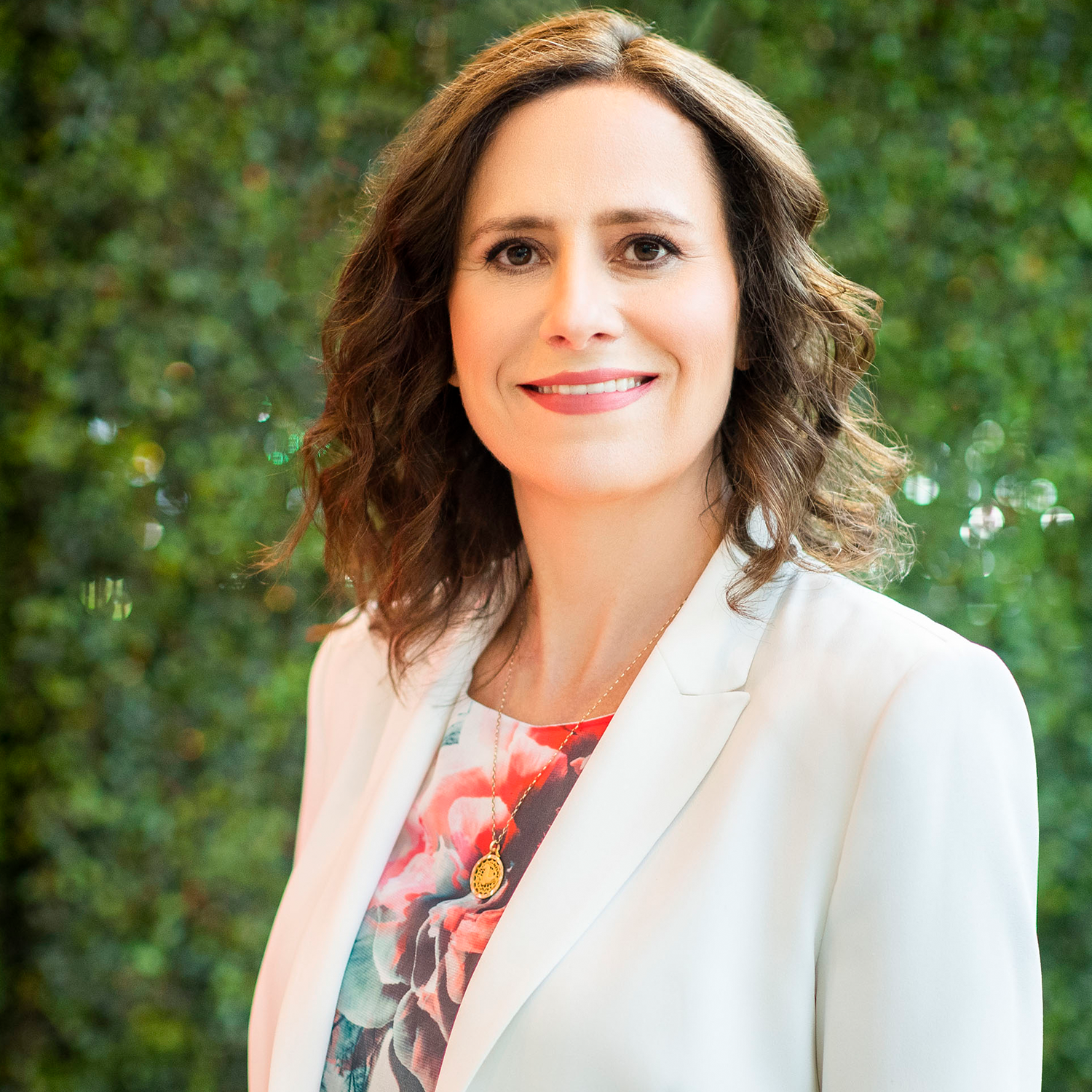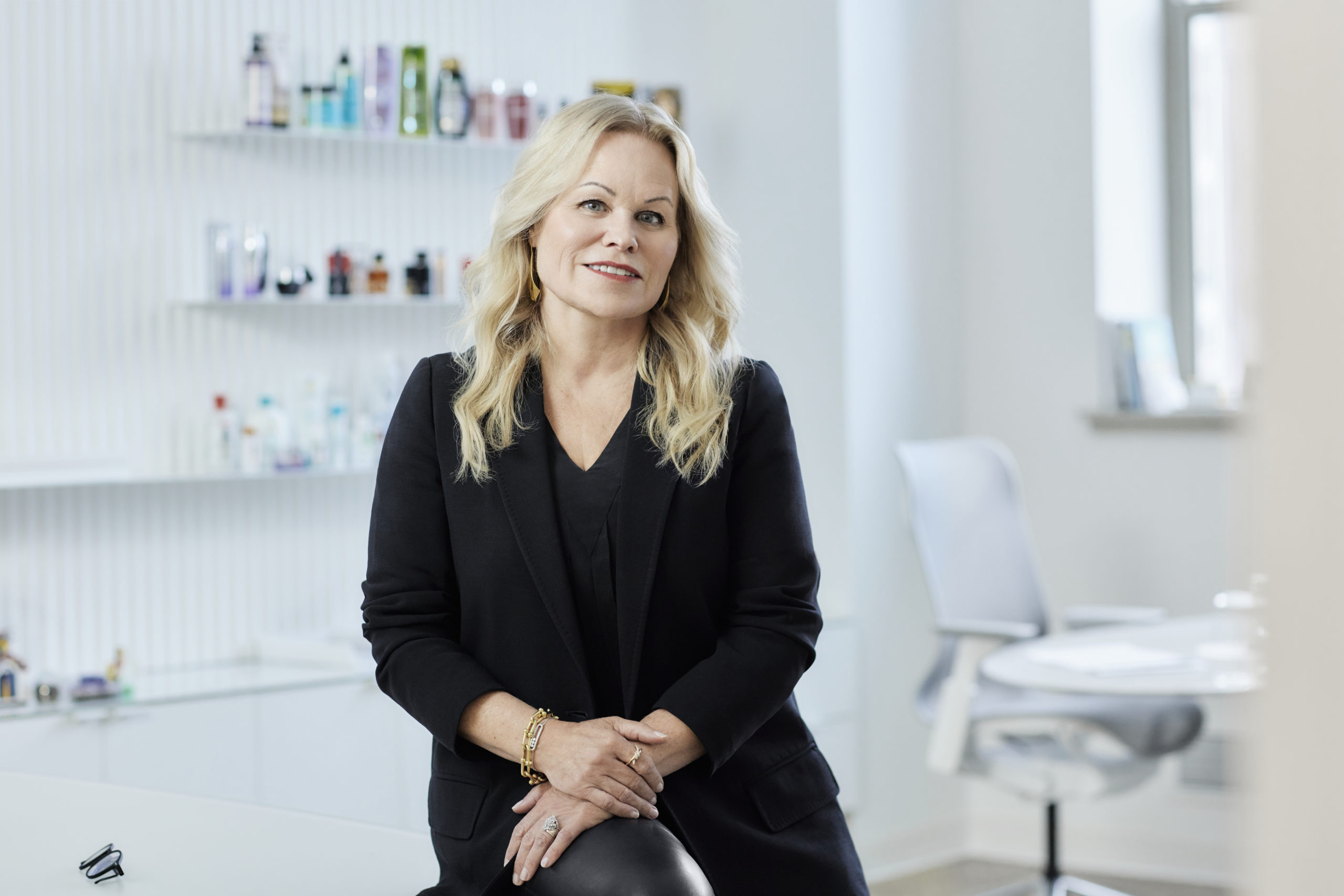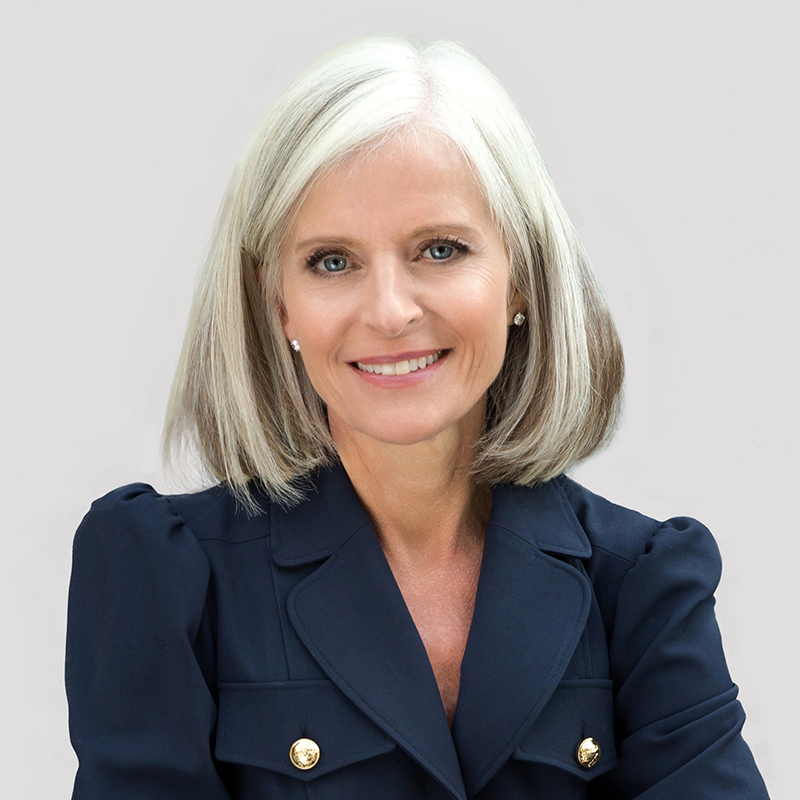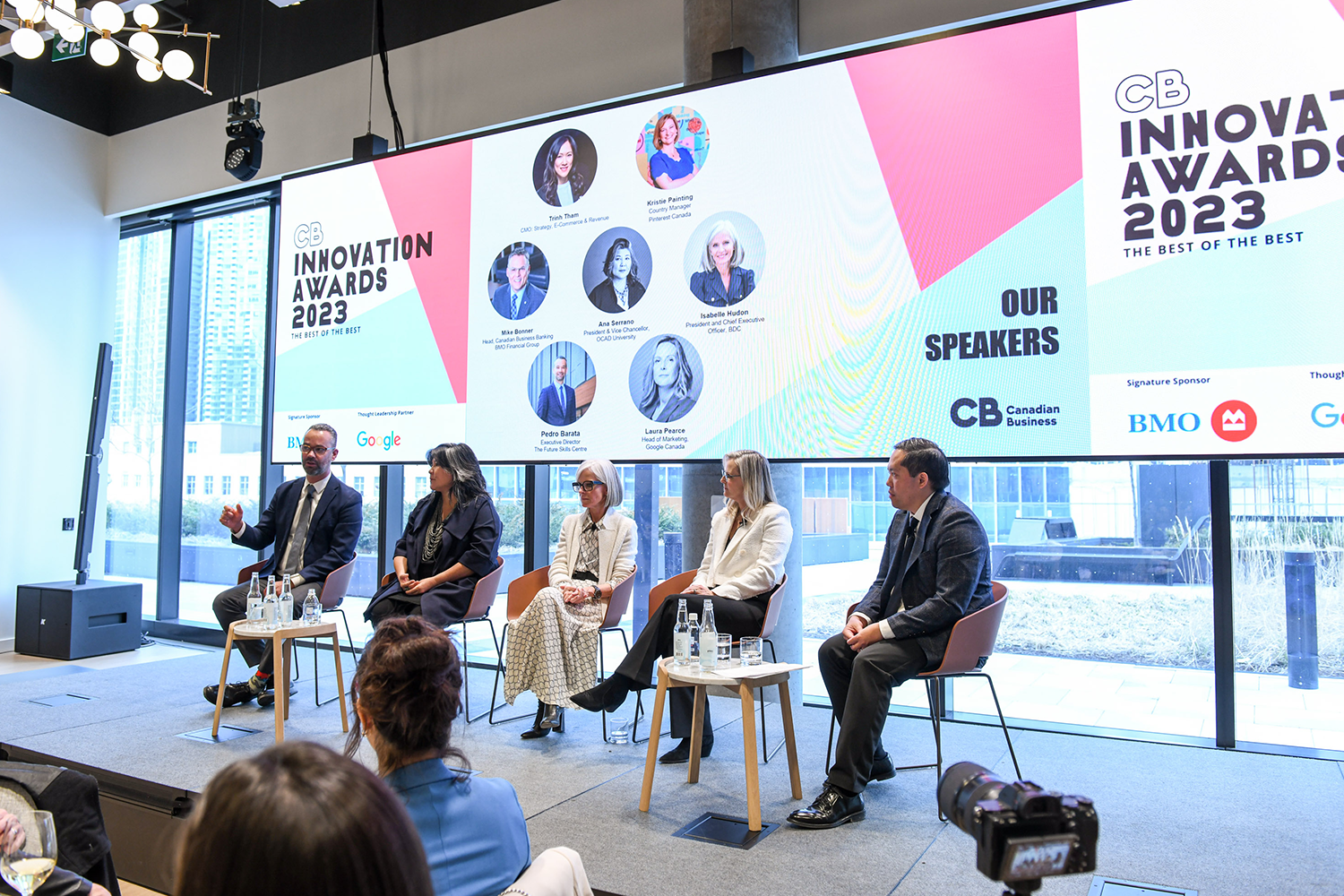Google Canada’s Sabrina Geremia on Why Everyone Needs Digital Skills in Today’s Economy

Sabrina Geremia doesn’t believe in natural-born leadership, but instead, believes that great leaders come in an array of shapes and sizes. “So long as you put in the work and commit to learning, growing and adapting, I ultimately believe that anyone can harness great leadership,” she says.
As vice-president and country manager for Google Canada, Geremia has become one of the country’s top names in tech with more than 25 years of experience locally and abroad. In leading Google Canada’s advertising business and the strategic direction of the company’s cross-functional business strategy—including community investments—Geremia’s focus is to help Canadian businesses thrive in the global digital economy and for all Canadians to develop strong and sustainable digital skills.
Named Canadian Business’s leader-in-residence this month, Geremia sat down with CB to discuss diversity in tech, her career journey and the steps Google is taking to connect more Canadians to the tools they need to flourish in the digital economy.
What personal experiences do you believe have contributed to your success?
Truthfully, it begins with my family. I come from a large, unconventional immigrant family where I was the youngest of six children. There was a lot happening at home and I was constantly listening and observing. I think that because my parents gave me a lot of trust, I was able to take risks and discover the value of creating my own path and relying on my own judgement at an early age. A little later in life, at around age 16, I signed up for an international exchange that took me to Sweden for a summer. Immersing myself in a new culture and challenging my perspective impacted me in a great way as well.
But one of the core memories that I believe directly supported my ability in the tech sector was when my older brother brought home an early IBM computer around Christmas. He encouraged me to open up the box and explore it as much as I could. Ridding myself of the intimidation of technology was one of the greatest gifts I could have received—generating excitement in me that eventually led to my taking an internship at Microsoft during my studies at Laurier University. I try to encourage all women and folks from underrepresented communities to similarly break away from any fears they have of technology.
How does diversity in the tech sector lead to innovation?
Diversity yields better outcomes and should be a part of every business. At Google, we look at diversity in three distinct ways. The first centres around building a culture that accelerates representation, a strong talent pool and an inclusive workplace. Secondly, diversity must be a part of our co-creating process. It’s vital to the long-term success of our products that we create through the lens of different perspectives. An example is the team optimizing the detection of skin tone in our Pixel cameras. User experience suffers when you don’t diversify your team. Lastly, diversity means investing in the communities that you operate. The investments Google has made into digital skilling, especially to underrepresented groups, are very important. It comes down to assuring that everyone has access to equal opportunity.
Regardless of sector, how essential are digital skills when entering today’s workforce?
When I was early in my career, it was exciting to be one of the only people at the table with a knowledge of technology. Today, it’s less of an advantage and more of a necessity. Regardless of the business you’re in, digital is essential for working Canadians. If digital is changing the shape and accelerating the footprint of businesses across the country, then all workers need to access digital skills. I’ve even talked to developers and real estate leaders who agree that even those in the trades require digital skills today. The micro-credentials that Google offers through its Google Career Certificate programs are an example of how we’re working toward providing greater access to the skills that lead to lucrative and high-demand jobs.
What has your international marketing experience taught you about the Canadian market?
In such a diverse country like Canada, it’s easy to see how much we have in common with those across different cultures. Travelling, however, provides a lot of opportunities to learn about our weak spots and really challenge the viewpoints we develop throughout our careers. I think my international experience has taught me a lot about Canada’s market, but it’s mostly impacted how I understand diversity in the workforce. Prioritizing this has led to a greater sense of inclusion and belonging that I believe moves everything forward.
What are some of the milestones that have motivated you?
When I think about Google’s impact and our shared purpose, I immediately think of Canada’s small businesses. We just released our annual Economic Impact Report, which details the $37-billion Google tools have provided in economic activity for Canadian businesses, nonprofits, publishers, creators and developers. What I find so motivating is how we’re working with nearly two million businesses and impacting so many lives.
What was it like as a woman entering the tech sector, and is that experience reflective of the current landscape?
There have been many gains for women in tech but there’s definitely still a long way to go. Google releases a diversity report every year, which shows our data around the topic. So, we can see very clearly when progress is being made. In 2021, for example, 37.5 per cent of global new hires were women—our best yet. I consider it a huge advancement, yet there’s room for improvement. Not to mention, role models are a very big part of encouraging young women to enter the sector. While I hope to see more, there are so many fantastic female business leaders in Canada that are proof of our evolving culture. Joanna Griffiths from Knix, Eva Wong from Borrowell and of course Noura Sakkijha from Mejuri are just a few. Also Maayan Ziv from our Google For Startups Accelerator—who runs a company called Access Now—is another example of how fostering an inclusive culture creates meaningful change.









